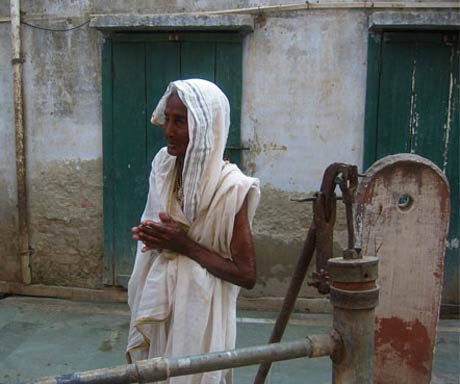A newcomer to the directors chair, Dilip Mehta makes his debut with The Forgotten Woman, a film that continues in the same vein as his sister Deepa Mehtas Oscar nominated Water, but this time in contemporary documentary form. It follows the lives and living conditions of modern day Indias vast population of widows, who are excluded from their communities and exploited by their own families. Often blamed for the deaths of their husbands and labelled witches, the widows are taken advantage of by their in-laws and completely ostracized from society. They are discriminated against, stigmatized and left with no property rights, all for something beyond their control. The Forgotten Woman is a series of portraits depicting real women who live through this suffering on a daily basis, surviving only by begging and singing religious songs in ashrams. Admittedly, this routine does get a bit repetitive but the film succeeds in exposing a relatively unexplored issue that has persisted for generations in India. In the words of one of the anonymous widows in the documentary, "If this is what God had in mind for women, he shouldnt have created us. She is barely able to keep her tears in check and you wonder how a shot can get so intimate and so distant all at once. Despite a sense of getting the same story several times over, each portrait is honest and whats more, amidst all the tragedy comes an odd sort of peace and even occasional moments of joy. It is a film that is haunting in many ways because it is so real. Unfortunately, the DVD doesnt include any real special features, which is disappointing for those looking for insight into the inspirations that drove the documentary.
(Mongrel Media)The Forgotten Woman
Dilip Mehta

BY Erene StergiopoulosPublished Sep 8, 2008



